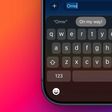Back in 2012, patent holding company VirnetX won a patent lawsuit against Apple over virtual private networking (VPN) connectivity related to Apple's FaceTime video calling feature. VirnetX was awarded $368.2 million after a jury trial.

The U.S. Court of Appeals for the Federal Circuit today threw out the decision, reports The Wall Street Journal, ruling that the verdict was influenced by the instructions given to the jury during the trial.
The U.S. Court of Appeals for the Federal Circuit, a specialized Washington-based court that handles patent appeals, ruled the verdict was "tainted" by erroneous jury instructions in the case. The court also held some trial testimony from a VirnetX expert should have been excluded from the case.
Despite siding with Apple and reversing some of $368 million verdict, the court did rule that Apple infringed on some of the claims in VirnetX's patents, which means damages will need to be redetermined.
As a result of today's appeals court verdict, Apple and VirnetX will go back to trial court for further proceedings, further drawing out a lawsuit that first began in 2010.



















Top Rated Comments
I am hoping this happens in the future. I use FaceTime regularly and noticed a significant drop in quality after they changed their service due to the lawsuit.
I used tcpdump to check and confirmed that FaceTime is usually Peer to Peer again. I'm guessing Apple found a workaround for the patent at some point and quietly fixed it.
Basically, call quality was notably good so I had to investigate to see if it was still going through a bounce server. I was pleased to find packets going directly to and from the other person's network instead of AWS. :)
The Seventh Amendment requires only "trial by jury", and doesn't specify that the jury must be made up only of ordinary randomly-chosen people, although I would agree that a Federal jury of judges is unconstitutional. The Fifth Amendment, which provides for "due process" is offended when a litigant's rights are determined by an under-educated, under-sophisticated, and under-intelligent jury which can't possibly be relied upon to weigh the scientific and engineering issues of fact on which a patent case often turns. I love juries, and when it comes to deciding who is telling the truth and who is lying about events that occur in ordinary life, I trust a lay jury over any alternative. I just don't believe a randomly-selected lay jury is the best way of determining whether a violation of an issued patent has occurred. There is an excellent and balanced law review article on this subject that I'd recommend:
http://www.stlr.org/html/volume2/fisher.pdf (http://www.stlr.org/html/volume2/fisher.pdf)